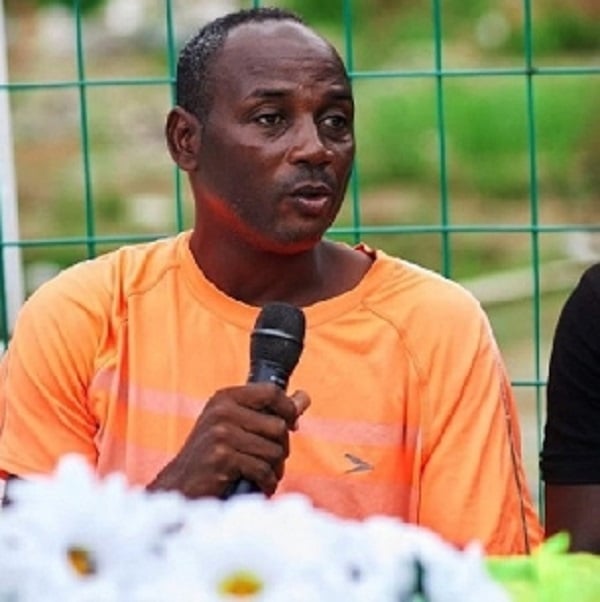Former Accra Hearts of Oak goalkeeper Ali Jarrah has recently made headlines following a misinterpreted statement regarding his political alignment, particularly in relation to Vice President Mahamudu Bawumia, the presidential candidate for the New Patriotic Party (NPP) in the upcoming December elections. An article published by The Chronicle on September 26 suggested that Jarrah had publicly pledged support for Bawumia and claimed to have mobilized four million supporters for him. This narrative has stirred significant discussion, prompting Jarrah to clarify his position following a mistaken conflation of a friendly sports event with political endorsement.
Speaking out on the Ghana Yensom Morning Show on Accra 100.5 FM on September 30, 2024, Jarrah expressed his astonishment at the article’s content, categorically denying any political involvement. He explained that the article misrepresented his participation in an event organized in Tema by Maestro Pele, which focused on supporting retired footballers rather than engaging in political discourse. Jarrah’s appearance at this event aimed to advocate for the welfare of former athletes, and the conversations therein were meant to bolster community support rather than signal his alignment with any political movement.
Jarrah’s emphasis lay on the fact that he spoke predominantly in Ga during the event, which he believes may have contributed to the misunderstanding. He articulated that he finds it particularly concerning when his words are misinterpreted or taken out of context to create a narrative he never intended to convey. This misrepresentation may have stemmed from a lack of clarity regarding his commitment to sports, particularly around initiatives that support former players, rather than any aspiration to enter the political fray.
The former goalkeeper underscored his position as someone wholly detached from political affiliations, affirming his commitment to humanitarian efforts surrounding the welfare of retired footballers. He highlighted that by aligning himself with a political candidate or party, he could jeopardize his mission of soliciting support from various political factions for the benefit of the football community. His plea was to maintain a neutral stance, thus allowing him to foster unity and support irrespective of political divides.
Jarrah’s remarks highlight a broader conversation about the intersection of sports and politics, where figures from the athletic sphere often find themselves embroiled in political narratives inadvertently. The former goalkeeper’s insistence on focusing solely on sports welfare echoes a sentiment shared by many athletes who navigate their public personas. Athletes traditionally advocate for the rights and visibility of retired sportspeople, but the conflation of their advocacy with political endorsements poses risks to their core missions.
In conclusion, Jarrah’s proactive approach to clarify his stance against the backdrop of misrepresentation is a testament to the need for clear communication in all spheres, especially in media coverage. His commitment to his community and its support underscores a vital narrative: individuals in the public eye must remain vigilant in protecting their identities and messages against political connotations that do not align with their true intentions. As the election season approaches, the expectations for athletes and sports figures to remain in their lanes while advocating for specific causes becomes increasingly pertinent.














